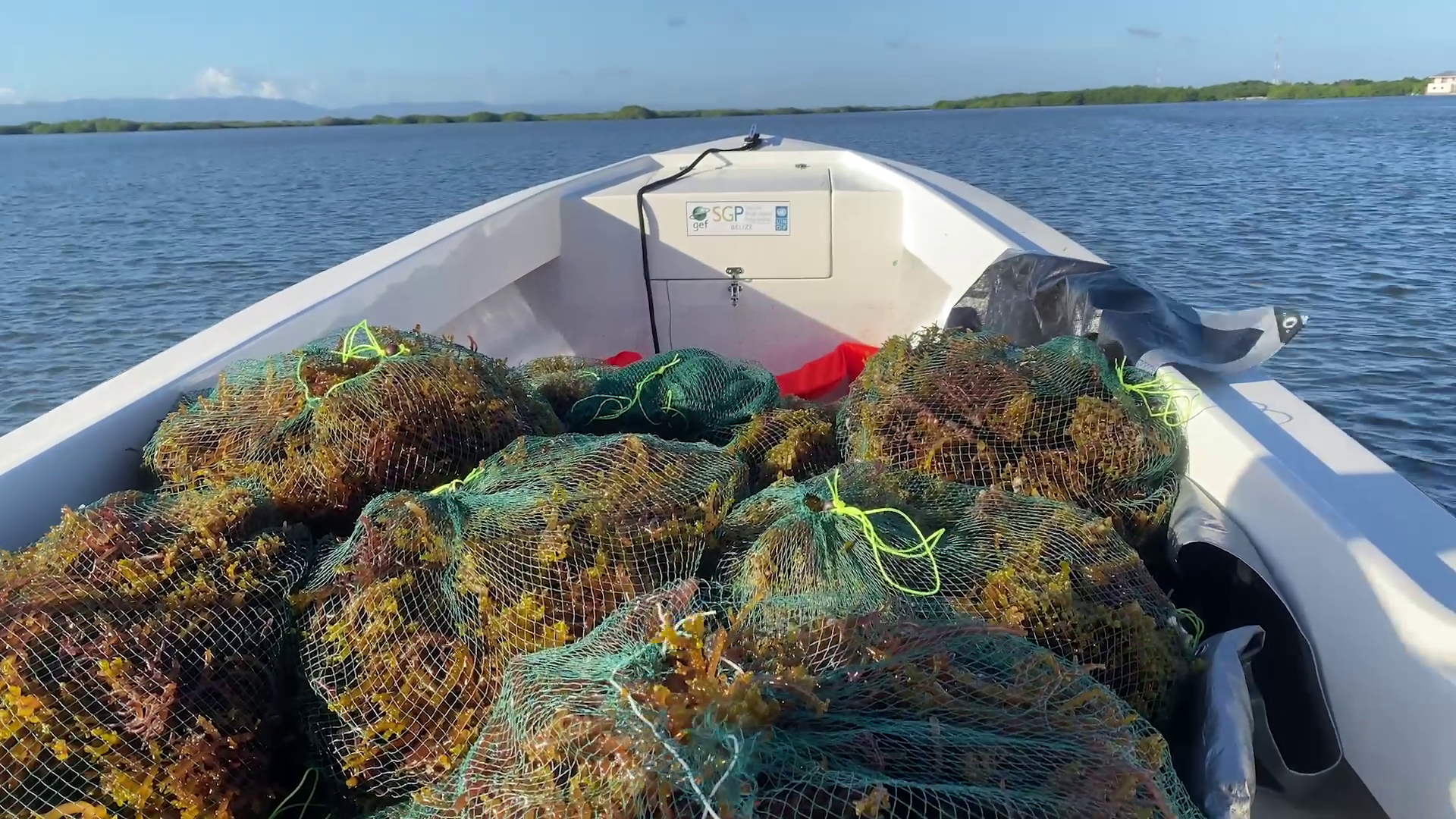Off the coast of southern Belize, something remarkable is happening beneath the waves and it’s being led by women. In Placencia Village, seaweed farming is more than just a livelihood, it’s a movement. These women are not only cultivating the ocean’s bounty, but they’re also building businesses, protecting the environment, and inspiring the next generation to dive into the maritime world with confidence and purpose. News Five has partnered with the Belize Fund for a Sustainable Future to highlight its work with various community-based, environmental organizations under the Blue Bond initiative. Here’s Isani Cayetano with the following story.
In the warm, clear waters off Belize’s coast, a quiet revolution is taking root, led by women. In Placencia Village, these ladies aren’t just helping out, they’re leading the way in seaweed farming. It’s more than just a job. For many, including Jalima Gold, it’s a lifeline that supports their families, strengthens their communities, and even helps protect the environment.
Jalima Gold, President, Belize Women Seaweed Farmers Association
“I’m very passionate about our waters here in Belize and so when I kind of found out that you could do farming in the ocean, that’s for me, personally, kind of where it sparked like an interest, you know. Something that you could farm in the ocean, in the environment where I always felt comfortable and happy.”
Alisha Westby, Member, Belize Women Seaweed Farmers Association
“I’ve been hearing about this association for years, through Ms. Jalima Gold. She’s always been a big advocate, and so, through her, I got to know about… that they were even accepting members. I had no idea about all the particulars until like she kinda sat me down and was like, “Hey this is a great association that you should join.”
“There are many uses to these same types of seaweed that we have here. We have two different types. We have the Kappaphycus alvarezii and we have the Euchumatopsis isiformis. They are both in the red algae [species], they are part of the red algae. We have brown algae, and we have red. But those two are part of the red algae.”
“I have a little business called Natural Goddess Scrub and I use all natural ingredients. So it kinda makes sense that eventually I will add the seaweed into my scrubs, I just have to get the science down. The science is kind of lagging for me. I plan to start making seaweed-based soaps to go alongside with my scrubs that I will eventually, hopefully get the science for to narrow down how to make it to my all-natural, oil-based sugar scrubs.”
Dawn Dean, Founder, Barranco Botanics
“Their plan is to use seaweed in all of the soaps that they make. I think, sometimes in Belize, as small business owners, as entrepreneurs, we are reluctant to share our knowledge about how we create what we create. But I personally believe that that there is space in the industry for a lot more soap because, ideally, everyone bathes everyday.”
In seaweed farming communities, it’s often the women who are leading the charge, not just in the water, but in shaping a more sustainable future. They’re the ones championing eco-friendly practices, managing vital resources, and driving local projects that help their communities grow stronger and more resilient.
“That’s one of the main things for me. I have a daughter who wants to be a captain. She does scuba diving, she’s in the maritime space and when you talk about women and seaweed, it’s not just women in like the seaweed farming aspect, right. It’s women in maritime space, in general. And so it’s very important for us to start pushing boundaries and kind of breaking those barriers for other young females, young women and little girls to feel like they have a safe space and it’s something that if they’re interested in or if they’re passionate about that they can go forward and do that.”
